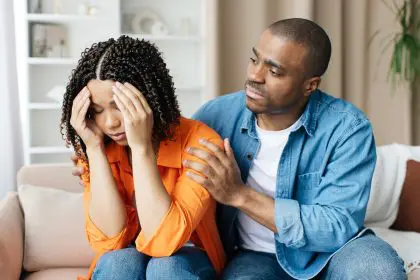Body image concerns, particularly about weight, can significantly impact romantic relationships. While physical appearance isn’t everything, how we feel about ourselves often determines how we approach love and intimacy. Understanding this connection helps us build healthier relationships with ourselves and others.
The confidence connection
Self-perception powerfully influences our approach to romance. When we feel insecure about our bodies, it affects every aspect of relationship building. This insecurity often manifests in subtle ways, creating barriers to genuine connection and intimacy.
Many people withdraw from potentially romantic situations, convinced their body shape makes them less desirable. This self-imposed isolation can prevent meaningful relationships from developing. Research shows that body image concerns often lead to decreased dating frequency and reduced relationship satisfaction.
The impact extends beyond initial dating phases. Even in established relationships, body insecurity can create emotional distance. Partners may misinterpret this withdrawal as lack of interest, leading to relationship strain that has little to do with actual attraction.
Intimacy challenges
Physical intimacy often suffers most from body image concerns. People feeling insecure about their shape typically:
Physical manifestations include:
- Avoiding intimate moments
- Keeping clothes on during intimate encounters
- Limiting physical affection
- Refusing certain positions or activities
- Diminishing sexual satisfaction
- Creating emotional barriers
These behaviors can create a cycle where reduced intimacy leads to further relationship dissatisfaction, reinforcing negative self-image.
Dating dynamics
Body insecurity particularly affects dating behavior. Many people limit their dating possibilities, convinced they won’t meet others’ standards. This self-limiting belief system creates artificial barriers to connection.
Those who do date often engage in counterproductive behaviors:
- Choosing unflattering clothing to hide their shape
- Making self-deprecating comments
- Avoiding eye contact
- Deflecting compliments
- Missing social opportunities
- Settling for unsuitable partners
These patterns prevent authentic connections from forming, as potential partners respond more to defensive behavior than physical appearance.
Health and relationship interplay
Physical health significantly impacts relationship dynamics beyond appearance. Carrying extra weight can affect energy levels, mobility, and overall well-being, influencing how couples spend time together.
Relationship activities might be limited by:
- Reduced energy for outings
- Physical discomfort during activities
- Health-related anxiety
- Limited spontaneity
- Decreased physical intimacy
- Restricted travel options
Understanding these limitations helps couples adapt their activities while maintaining connection.
Rebuilding confidence
Restoring romantic confidence requires addressing both internal and external factors. Mental health professionals suggest several approaches:
Start with self-acceptance: Acknowledge your worth beyond physical appearance. Focus on personal qualities that make you a valuable partner. Recognize that attraction encompasses more than body shape.
Practice open communication: Share insecurities with trusted partners. Most find their loved ones care far less about physical imperfections than imagined. Honest dialogue strengthens emotional bonds and creates deeper understanding.
Focus on overall well-being: Approach health holistically, considering physical, emotional, and mental aspects. Make choices that enhance energy and confidence rather than focusing solely on appearance.
Creating authentic connections
Building genuine relationships requires moving beyond physical insecurity:
Develop emotional intelligence: Understanding your own emotions and those of others creates stronger connections. This awareness helps overcome physical insecurities through deeper emotional bonds.
Practice vulnerability: Allow yourself to be known beyond surface appearances. Share thoughts, dreams, and fears with potential partners. These connections often prove more meaningful than physical attraction.
Moving forward
Overcoming body image concerns takes time and patience. Remember that successful relationships depend more on emotional connection than physical perfection. Focus on developing confidence through:
Personal growth: Invest in self-improvement beyond appearance. Develop interests, skills, and qualities that make you an engaging partner.
Relationship building: Work on communication, trust, and emotional intimacy. These elements create lasting bonds that transcend physical appearance.
Long-term success
Creating fulfilling romantic relationships while dealing with body image concerns requires:
- Consistent self-compassion
- Regular communication
- Focus on emotional connection
- Appreciation of personal worth
- Investment in overall health
- Commitment to growth
Remember that lasting love develops from genuine connection, not physical perfection.
This story was created using AI technology.
















